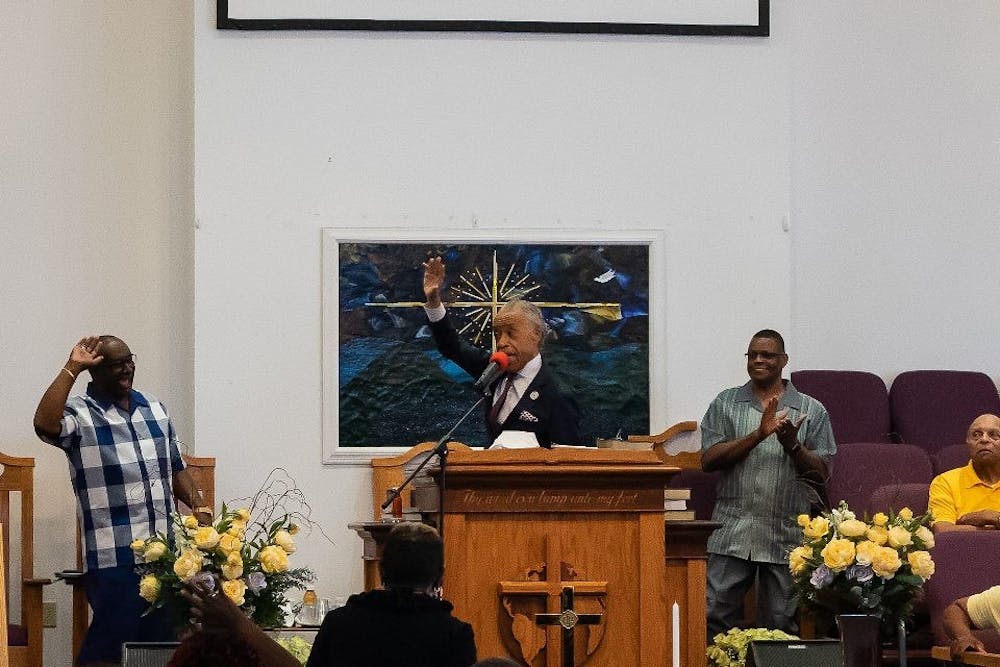Mount Zion First African Baptist Church in Charlottesville was packed Sunday morning as attendees waited for Rev. Al Sharpton, a civil rights activist, to deliver a guest sermon on the one-year anniversary of the white supremacist Unite the Right rally.
“People around the world need to know that in Charlottesville, racism happened”, Sharpton said.
He urged the congregation, by then numbering close to 250 people, not to give up hope. He also admired a protest led by students and anti-fascist activists Saturday night in which demonstrators marched three miles from University Grounds to Market Street Park in downtown Charlottesville after a rally held near the Rotunda by U.Va. Students United.
“You can turn back the clock, but you can’t turn back time”, he said. “The hope is that young white students joined young black students [at] the University of Virginia, and they marched.”
As the crowd became more enthusiastic, Sharpton spoke on the manner in which activists should conduct themselves, saying, “We cannot be like those we fight”.
“The best way to move forward is to put a clean glass next to the dirty glass”, he said later to reporters. “I hope that we remain strong and passionate, but not violent.”
He did, however, identify Charlottesville’s Confederate Statues of Generals Robert E. Lee and Stonewall Jackson, located in Market Street Park and Court Square Park, respectively, as instigators for protests and tensions in the city. Sharpton added that the statues were part of the reason he came to Charlottesville for the anniversary weekend.
“The scene of the crime is here, the statues are still here,” Sharpton said. “We must take down the statues, we much take down hate.”
The Charlottesville City Council voted to remove the statue of Lee in February 2017 and the Jackson statue in September of that year in the aftermath of the Unite the Right rally. Currently, the City is still in the midst of legal battle over whether state law prohibits it from removing the statue.
Also in attendance was Charlottesville City Councillor Wes Bellamy, who spoke with the press after the service.
Bellamy said he acted as a liaison between law enforcement personnel in riot gear and demonstrators Saturday night during the rally and subsequent march to avoid conflict between the two groups.
“[I wanted to] make sure that everyone understood tensions were raised,” Bellamy said.
He spoke about the conditions in the City during the weekend, telling reporters that it has “chosen safety over convenience,” and that he “may not agree with all of the tactics, but I understand.”
The increased level of law enforcement personnel and implementation of security restrictions in anticipation of potential demonstrations during the anniversary weekend has been a point of contention in the community.
Both Sharpton and Bellamy echoed a message of unity, saying that the local community must come together to heal.
“Even if people outside may see tragedy … I see a community dealing with the difficulty,” Bellamy said.
Sharpton urged those present during the sermon to continue to work, adding that they cannot discriminate.
“Don’t fight for freedom for you,” he said to the congregation, “Fight for freedom for everyone.”
During Sharpton’s visit to the church, anti-racist activists held demonstrations in nearby downtown after rallying earlier in the morning at Washington Park.







